25 Sep 2014
How Is Substance Abuse Childish Behavior?
It might seem like an odd way to think about substance abuse and addiction, but the behaviors are childish and immature. No one can claim ignorance of the negative consequences of drug or alcohol abuse, yet people do it anyway. Being impulsive and lacking self-discipline are traits that are common in children and which we are expected to outgrow. So why do drug abusers act like children and how can they learn to grow up?
Impulsivity, Self-Control And Drug Abuse
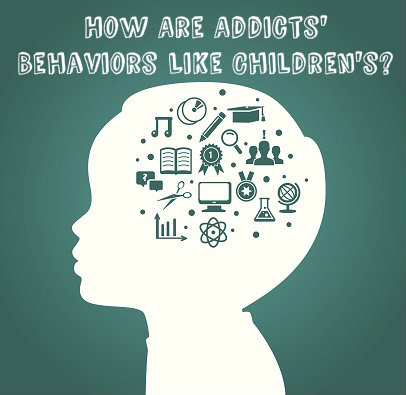 Controlling impulses is something we all have to learn as human beings. We are not born with self-discipline. As young children we reach for what we want. As we grow older we learn to control our impulses. Those who fail to learn the skill, for whatever reason, are not as successful. For instance, a study found that teenagers that exhibited strong self-control were more likely to be positive, achieve goals and be self-motivated and successful in academics than their impulsive peers.
Controlling impulses is something we all have to learn as human beings. We are not born with self-discipline. As young children we reach for what we want. As we grow older we learn to control our impulses. Those who fail to learn the skill, for whatever reason, are not as successful. For instance, a study found that teenagers that exhibited strong self-control were more likely to be positive, achieve goals and be self-motivated and successful in academics than their impulsive peers.
Research has also found that being impulsive and lacking self-control are traits that may be inherent in some people. We also know that having these traits makes some people more susceptible to drug abuse and addiction. If you can’t control your impulses, and if you lack the self-control to turn down a pleasurable drug because of negative consequences, you are more likely to be an addict.
Growing Up And Learning Self-Control
Just because addicts act more childishly and are more impulsive than non-addicted adults, does not mean they cannot learn to control themselves and be more emotionally mature. One powerful, yet simple, tool is distraction. People who have good self-control are good at distracting themselves. If something pleasurable is set before you, but you know you should resist, distract yourself. Think about other things or engage in an alternative activity—whatever you do, make the distraction positive. You will be more likely to control your impulse if you can distract yourself with something that is pleasurable and good for you.
Another good tool that emotionally mature adults use is stress-management. If you are stressed out, you put yourself in a negative cycle of bad behaviors and poor health. When stressed, you are more likely to be impulsive. Meditation, exercise, adequate sleep, good nutrition and mindfulness all help to manage stress and help you to make better choices, not ones based on impulses. The better you feel, the better able you will be to make good choices.
People with good self-control are good planners. Thinking about the future and planning for situations in which your self-control may be tested can help you to resist your impulses. For instance, if you are trying to cut back on drinking, consider all the possible situations you may face. If you’re going to a party, make a plan for how many drinks you will have and how you will resist the impulse to have more. Plan out how you will handle people who urge you to keep drinking. Making these plans can help lead you to successfully control your impulses.
Finally, maintain a positive attitude. Some people believe that willpower is a finite resource, but this isn’t true. You may be faced with a number of temptations, but you can learn through practice and experiences to control your impulses. You are not a child anymore, and although you still act like one at times, you do have the power within you to grow up and act like a mature adult with self-control.
08 Sep 2014
Straight-A Students And Substance Abuse
Countless parents have had this internal argument: My kid is a good kid. She gets all As at school. She’s an athlete. She couldn’t possibly be using drugs or drinking, right? Unfortunately, some of those parents are wrong. Good kids abuse substances too. Teenage experimentation with drinking or drugs doesn’t always look like the stereotypical burnout. All parents should be aware that substance abuse is everywhere and know the more subtle signs and symptoms.
Teens And Substance Abuse
The good news about teens abusing drugs and alcohol is that the trend is moving downward. Fewer teens drink, smoke, or use most illegal drugs than did a few years ago. Abuse of marijuana has been rising as the perceived risk of this drug goes down. Prescription drug abuse still makes up a significant part of teen substance abuse. Although use rates are declining for most drugs, many teens are still abusing substances and suffering the consequences. Nearly one-quarter of all high school seniors report having used marijuana in the last month, while 15 percent used a prescription drug non-medically.
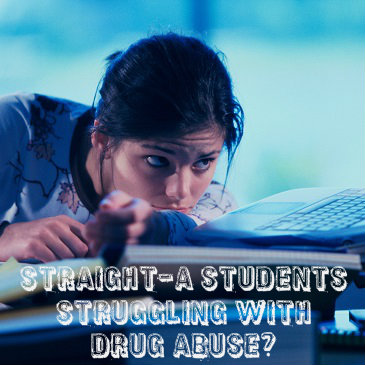 Numbers don’t lie. A lot of teens abuse substances. If you think that your teen is not using simply because she is a straight-A student or because she is popular and on sports teams, or because she is involved in several extracurricular activities, think again. No teen is exempt from the pressures that can lead to experimentation with drugs or alcohol, and many are good at hiding their substance abuse, especially from parents. Here are some of the more subtle signs to look out for in your teen:
Numbers don’t lie. A lot of teens abuse substances. If you think that your teen is not using simply because she is a straight-A student or because she is popular and on sports teams, or because she is involved in several extracurricular activities, think again. No teen is exempt from the pressures that can lead to experimentation with drugs or alcohol, and many are good at hiding their substance abuse, especially from parents. Here are some of the more subtle signs to look out for in your teen:
Teen Substance Abuse Signs
- Changes In Sleep Patterns: Drug and alcohol use impacts sleep in a number of ways. It can make someone sleep more or can lead to insomnia. Look for signs that your teen is staying up later than normal, sleeping in later than usual, or napping more frequently. Also be aware of any signs that she is often tired, such as yawning, bags under her eyes or sleeping in class.
- Missing Important Activities: If your teen is involved in a lot of activities, she may be able to drink or use drugs for a little while before it starts to impact them. Eventually, though, she will start to slide. It may be just a little bit at first. She might be late to one or two events when normally she is punctual. Maybe she decides to give up one of her less important activities.
- Physical Signs: Some of the effects of drug use can’t be covered up. Look for persistent coughing, bloodshot eyes, dilated or pinpoint pupils, an increased appetite, unsteadiness, unusually bad breath, unfamiliar smells or lethargy.
- Secrecy About Money: If your child has always been open about her money and what she spends it on, be concerned if she suddenly becomes secretive. If she doesn’t want you to see her bank account information or go through her purse, be aware that something may be up.
Good Students And Prescription Drugs
You may be right when you say that your straight-A teen would never drink, smoke pot or use street drugs to get high. What many parents of good students don’t realize is that certain prescriptions are abused for academic reasons. Prescription medications for ADHD are popular with ambitious students. These drugs are stimulants and high school and college students are abusing them in record numbers to stay awake and alert for studying and writing papers. Subtle signs of drug abuse in your teen may indicate she is using stimulants because of the pressure she feels to get good grades.
No matter how good your teen is or how successful she is in school, you cannot guarantee that she will not experiment with drugs or alcohol. Always be aware of the potential for abuse and spend time talking with your teen. Make sure she knows she can open up to you and you will be more likely to catch any problems before they go too far.
05 Sep 2014
Discover When Partying Becomes Addiction
Partying can be a fun way to relax and unwind on the weekends and—when done without drugs and only moderate alcohol intake—a healthy way to combat stress. If, however, you are the type of partier who uses illicit drugs or who binge drinks, you could be heading down a dangerous road to addiction, serious health problems and even death. It may be time to question your partying habits and take a hard look at your actions. Are you partying responsibly and moderately? Or are you getting out of control?
When Does Partying Become Addiction?
 Partying may be as innocent as hanging out with friends at a house party with a couple of beers or going to a club for a few hours of dancing, but it can also mean using club drugs, drinking excessively, and making dangerous choices. You may even start partying and using what are considered to be non-addictive club drugs just once a week, but then find that you want to do it more and more. How do you know when you have crossed the line from a fun night out to going out of control and heading down the path to addiction?
Partying may be as innocent as hanging out with friends at a house party with a couple of beers or going to a club for a few hours of dancing, but it can also mean using club drugs, drinking excessively, and making dangerous choices. You may even start partying and using what are considered to be non-addictive club drugs just once a week, but then find that you want to do it more and more. How do you know when you have crossed the line from a fun night out to going out of control and heading down the path to addiction?
Here are some signs of addiction to watch for:
- You daydream about and crave the high you get when using a party drug or binge drinking. When you start to plan your party binges during the day and look forward to them more than once a week, you should be concerned.
- You develop a tolerance. In other words, you need more and more of a drug or alcohol to achieve the high and the euphoria that you crave.
- You start to use drugs or alcohol more often and in greater quantities. With tolerance comes the desire to use more. Be concerned if you start to increase the frequency of drug use or drinking in order to chase your high.
- You make poor decisions while under the influence. A serious aspect of problem drinking and drug abuse is engaging in risky behaviors that negatively impact your life. If you continue to use after getting sick from substance abuse, after missing work, or after getting into legal trouble, you have a problem.
Can You Turn Your Partying Around?
If you are beginning to question how much and how hard you party, you are in a good position to turn things around. Start cutting back right away. If it helps, do so in small steps. Eliminate one night of partying each week. On the nights that you do party, reduce your consumption of drugs or alcohol. Sometimes going cold turkey is not the most successful way to cut back.
Use your friends to help you stay focused on your mission to slow down. Tell everyone that you intend to cut back and ask for support. If any of your friends encourage you to party in spite of your declaration, they don’t have your best interests in mind and you need to let them go. For your nights off from partying, find sober friends to spend time with and engage in fun activities that don’t involve drinking or drugs.
If you try to cut back and find that you can’t do it, you may be further down the road than you thought and you may need professional help. Find an experienced substance abuse counselor or turn to a local support group for more resources. With professional help and the support of your friends and family, you can turn your life around before it is too late.
Your child is struggling with addiction. You have always been his caregiver. As a parent, you have taken care of him, helped him when he was down, kept him safe and took action when needed. Now that he is facing this very personal battle, you may feel helpless. How can you possibly take care of his needs when he is being ravaged by this disease? As a parent, the feeling of helplessness that accompanies the addiction of a child can be overwhelming and leave you with a sense of despair. You can’t fix the problem, but you can be there for your child and lend your support.
Why Can’t I Fix His Addiction?
You cannot fix your child’s addiction or cure him of it because addiction is a chronic disease with no hard and fast cure. You would never blame yourself for not being able to cure your child’s asthma or diabetes because you are not a doctor. You are not an addiction expert, a therapist or a doctor and you cannot treat or cure his disease. The sooner you are able to accept this fact, the better you will feel. That sense of helplessness will begin to lessen when you accept that your child has a disease that will require treatment by experts.
Can I Help My Child Overcome Addiction?
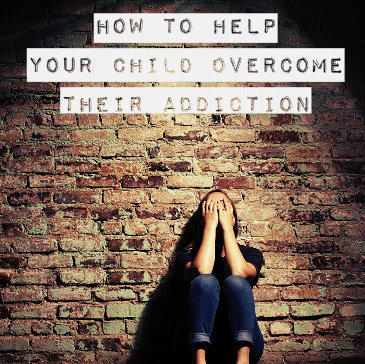 You do have the ability to help your addicted child. Once you accept that you cannot fix the problem, you can take steps to help him. Doing so will help to relieve those helpless feelings threatening to overwhelm you. In fact, taking action of some kind will keep you from falling into hopeless despair, which often leads to lethargy and inaction. Your child does need you now, so take steps to do what you can to help:
You do have the ability to help your addicted child. Once you accept that you cannot fix the problem, you can take steps to help him. Doing so will help to relieve those helpless feelings threatening to overwhelm you. In fact, taking action of some kind will keep you from falling into hopeless despair, which often leads to lethargy and inaction. Your child does need you now, so take steps to do what you can to help:
- Educate yourself – You have been blindsided by this problem and you probably have little experience with addiction. To better understand what your child is going through and what he needs from you, educate yourself about the disease of addiction. It will help you to have patience with him and to learn how to better support and assist him.
- Investigate treatment options – Unless your child is still a minor, you cannot force him to get professional help. You can, however, present him with options for treatment. Talk to your doctor about resources for addiction care and collect information about your options. Visit therapists and rehab facilities to get an idea of what is available and so that you can give your child the best choices when he is ready for help.
- Consider family therapy – Addiction is a disease that affects the entire family. Once your child has decided to get help, you can be an active participant. Engage in group therapy sessions with your child and other members of the family. He will find motivation in seeing that you and his loved ones are committed to his treatment.
- Build support – Your child is going through a difficult struggle, but so are you. You cannot give all your attention to him and forget about your own needs. Make sure you have built up support for yourself. Consider joining a support group for the loved ones of addicts. Also make sure that you have friends or family with whom you can talk when you feel overwhelmed and stressed. Support is necessary for addicts, but it is important for you too.
It is only natural to feel helpless when you cannot fix your child’s problem. You can guide him through it, though, and you can support him. When he is ready for help, be there for him and you will be doing the best you can.
If You Or Someone You Love Is Struggling With Drug Or Alcohol Abuse, You’ve Come To The Right Place – Help Is Just A Phone Call Away!
01 Aug 2014
How To Avoid Getting Hooked On Sleeping Pills
When most of us think about addiction, we envision someone shooting up heroin, smoking meth or drinking nonstop. Did you know that you can develop a dependence on drugs that seem much more harmless? We tend to think of prescriptions as safe because they are prescribed by doctors, but you should always be aware of the risks of any drugs you take. Sleeping pills are used commonly in the U.S. and it is possible to become addicted to them. If you need sleep aids, find out what the dangers are and learn how not to become dependent on them.
Can A Pill Cure My Sleeping Problems?
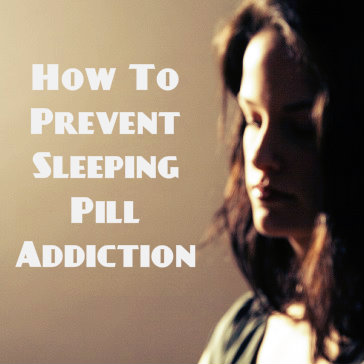 Too many people rely on sleep aids to get a good night’s rest without dealing with their underlying problems. Being unable to sleep is usually a symptom of another problem. You may struggle to sleep because you have another medical condition, but it’s more likely that your insomnia is related to stress. While a sleep aid may help you get some rest, it is not the answer to your problems. Sleeping pills are designed for short-term use, not for lifelong treatment.
Too many people rely on sleep aids to get a good night’s rest without dealing with their underlying problems. Being unable to sleep is usually a symptom of another problem. You may struggle to sleep because you have another medical condition, but it’s more likely that your insomnia is related to stress. While a sleep aid may help you get some rest, it is not the answer to your problems. Sleeping pills are designed for short-term use, not for lifelong treatment.
Are Sleeping Pills Addictive?
If you do use your sleep aid for a long period of time or if you deviate from your doctor’s instructions, you run the risk of experiencing side effects, of not solving the underlying problem causing insomnia and of developing a dependence on the medication. The risk level depends on the medication. Sleep aids include those that help you fall asleep and those that help you stay asleep through the night.
In the first category is Lunesta, which can cause withdrawal symptoms, and Halcion and Sonata, both of which are habit-forming. Among the drugs that can help you stay asleep all night are Estazolam and Restoril, both of which are also habit-forming. There are other sleeping pills that can be prescribed, which are not habit-forming and which do not cause withdrawal when you stop using them. Each one comes with its own list of side effects and some may not work well for you. Which one you take is a decision you and your doctor should make.
Some prescription sleeping pills are habit-forming, which means they are susceptible to abuse and can lead to addiction. Even with those medications that are not considered addictive, there is a risk of developing dependence. When you rely on a pill to get to sleep at night you may become psychologically dependent on it. The idea of not having that crutch to help you sleep can cause anxiety and lead you to keep using the medication, even when you no longer need it.
How Can I Take Sleeping Pills Safely?
The most important consideration in taking prescription sleep aids is to follow your doctor’s instructions. Speak up and discuss with your doctor if you feel like you are becoming dependent on your sleeping pill. Even over-the-counter sleep aids can lead to dependence if you are relying on them every night. If you need to take one for several nights in a row, talk to your doctor so that you can address the underlying reasons for your insomnia.
A sleep aid can be a good way to catch up on rest, but it is not a solution to your problem. Make sure that you get treatment for your insomnia. This may mean going through counseling to address any psychological issues keeping you awake, or trying natural methods or alternative medicine. Always take care when using prescriptions of any kind and keep yourself informed as to the risks and the possibility of dependency.
16 Jul 2014
Is Addiction A Brain Disease?
The nature of addiction has been debated for decades. The prevailing current view is that addiction is not a choice; it’s a chronic illness that affects the brain. Some, however, even addiction experts, reject this categorization and insist that addiction is a rational choice. There are dangers on both sides. Defining addiction as a disease may give addicts a sense of hopelessness and lack of control. Blaming addicts for their choices, on the other hand, results in stigma and shame.
When coping with a loved one who is addicted, it is important to understand what the research really tells us. While there is still room for debate, the evidence is overwhelming that addicts have a chronic brain disease. By better understanding how drugs or alcohol have changed a loved one’s brain, you may be able to find the patience and compassion to help him.
Addiction Defined
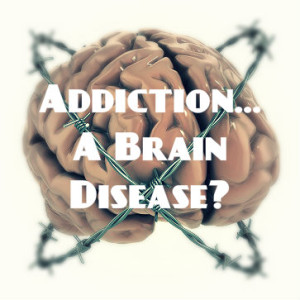 Modern research has uncovered some of the secrets of addiction. Those at the forefront of addiction expertise and treatment follow evidence-based practices and learn from medical research. With that in mind, the American Society of Addiction Medicine defines addiction as “a primary, chronic disease of brain reward, motivation, memory, and related circuitry.” In other words, to the best knowledge of those who study and treat addiction, addiction is a disease of the brain.
Modern research has uncovered some of the secrets of addiction. Those at the forefront of addiction expertise and treatment follow evidence-based practices and learn from medical research. With that in mind, the American Society of Addiction Medicine defines addiction as “a primary, chronic disease of brain reward, motivation, memory, and related circuitry.” In other words, to the best knowledge of those who study and treat addiction, addiction is a disease of the brain.
How Drugs Affect The Brain
If addiction is a disease of the brain, what exactly does that mean? It is easy to comprehend what a disease is. For instance, asthma is a disease that affects the respiratory system. Inflamed airways make it difficult to breathe. The right medications, avoiding triggers, and following a doctor’s orders all help asthma sufferers stay well and breathe with less difficulty.
Addiction is a disease that affects the brain. The initial use of drugs is a choice, but once in the bloodstream, drugs get into the brain and start to cause changes that impact mood and behavior. The first thing that happens when someone takes a drug is that cells in the brain release large quantities of a chemical called dopamine, which gives the user a sense of euphoria. That great feeling encourages subsequent and repeated drug use in order to recapture the euphoria.
Drugs also impact parts of the brain related to memory and self-control. Memories of taking a drug can make the user start to crave it again and again. The way in which drugs affect our control mechanisms in the brain mean that a user’s ability to resist cravings becomes severely impaired. These brain changes caused by drugs and alcohol clearly demonstrate that addiction is far more complex than making choices.
How Is Addiction Chronic?
As you cope with helping a loved one struggling to get into recovery, it is also important to understand the chronic nature of the disease. This means that there is no cure for the disease, only treatments. Like any other chronic illness, addiction is life-long. Relapses are not uncommon, but can be minimized by keeping up with treatments and establishing and maintaining a strong support system. In fact, research shows that rates of relapse among addicts are similar to those among people with other chronic diseases, like asthma.
Watching a loved one’s struggle with addiction is heartbreaking and frustrating. From the outside looking in, it can be difficult to understand why he doesn’t just stop using drugs. The more you understand his disease, that it impacts his brain and is chronic, the better able you will be to help him and to remain positive and patient with him as he gets treatment.
Read Our Other Posts For Friends And Family Of Addicts
Addiction specialists and other health professionals have a range of medication-based options for helping people affected by alcoholism. However, even when they receive one of these medications, some recovering alcoholics still lapse back into heavy alcohol consumption. In a study published in April 2014 in the journal Alcoholism: Clinical & Experimental Research, researchers from three German institutions assessed the effectiveness of individualized psychotherapy in recovering alcoholics who don’t respond sufficiently to medication-based treatment. Specifically, the researchers examined the usefulness of a form of individualized therapy called cognitive behavioral therapy.
What Medications Can Help Alcoholics?
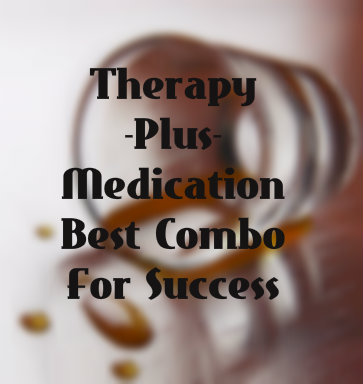 As of 2014, the U.S. Food and Drug Administration has approved a trio of medications for use in people recovering from alcoholism: naltrexone (Vivitrol), disulfiram (Antabuse) and acamprosate (Campral). Naltrexone is an anti-opioid medication that also blocks the chemical reactions responsible for triggering pleasurable sensations and alcohol cravings in drinkers. Disulfiram deters alcohol consumption by exaggerating the unpleasant chemical reactions associated with the breakdown of alcohol inside the body. Acamprosate makes chemical changes inside the brain that typically lessen the intensity of the alcohol withdrawal symptoms that commonly contribute to relapse risks in recovering alcoholics. Doctors also sometimes use a fourth medication, called topiramate (Topamax), not initially intended for use in alcoholism treatment. This anti-seizure compound also makes changes in the brain’s chemical environment that can help lower the odds that recovering alcoholics will take a drink.
As of 2014, the U.S. Food and Drug Administration has approved a trio of medications for use in people recovering from alcoholism: naltrexone (Vivitrol), disulfiram (Antabuse) and acamprosate (Campral). Naltrexone is an anti-opioid medication that also blocks the chemical reactions responsible for triggering pleasurable sensations and alcohol cravings in drinkers. Disulfiram deters alcohol consumption by exaggerating the unpleasant chemical reactions associated with the breakdown of alcohol inside the body. Acamprosate makes chemical changes inside the brain that typically lessen the intensity of the alcohol withdrawal symptoms that commonly contribute to relapse risks in recovering alcoholics. Doctors also sometimes use a fourth medication, called topiramate (Topamax), not initially intended for use in alcoholism treatment. This anti-seizure compound also makes changes in the brain’s chemical environment that can help lower the odds that recovering alcoholics will take a drink.
Cognitive Behavioral Therapy
Practitioners of cognitive behavioral therapy (CBT) help their patients/clients identify the underlying feelings, perceptions and actions that contribute to dysfunctional behavior in stressful situations. After making this identification, the individual can gradually learn a new set of feelings, perceptions and actions that don’t help trigger destructive behaviors. In the context of addiction treatment, CBT practitioners specifically help their patients/clients learn to do such things as anticipate the situations likely to increase the urge to use drugs or alcohol, learn how to cope with those situations without using drugs or alcohol, identify substance-using urges as soon as possible and accurately weigh the pros and cons of using drugs or alcohol.
Cognitive behavioral therapy is suitable for use in both individualized and group formats. In addition, the therapy can be used on its own or in combination with medication-based addiction treatment. In addition to alcoholism, forms of addiction addressed by CBT include addiction to the stimulants methamphetamine and cocaine, marijuana addiction and addiction to the nicotine contained in cigarettes and other tobacco products.
Usefulness In People Not Helped By Medication
In the study published in Alcoholism: Clinical & Experimental Research, researchers from Germany’s Freiberg University, Tubingen University and Heidelberg University used an examination of 109 individuals to assess the effectiveness of an individualized cognitive behavioral approach in helping recovering alcoholics who don’t receive enough benefit from medication-based treatment. All of these individuals were alcohol program participants who had experienced severe relapses back into drinking after taking an alcoholism medication, or after receiving a placebo that mimicked the appearance of an alcoholism medication. During the study, half of the participants continued to receive a standard combination of medication and medical symptom management. The other half received a combination of medication, medical symptom management and cognitive behavioral therapy conducted on an individualized basis.
The researchers analyzed the effectiveness of individualized CBT in all of the participants originally assigned to the therapy group, as well as the effectiveness of the approach in all of the participants who actively engaged in therapy. After completing these analyses, they concluded that the recovering alcoholics who actively engaged in the CBT process received a substantial benefit from the therapy and experienced improved treatment outcomes when compared to the recovering alcoholics who received only medication and medical symptom management.
The chief measurement used to compare the effectiveness of the combination of medication and individualized cognitive behavioral therapy to the effectiveness of medication without CBT was the number of days recovering alcoholics could successfully avoid experiencing another severe relapse. The authors of the study published in Alcoholism: Clinical & Experimental Research concluded that those program participants who actively embrace the goals of individualized CBT can potentially increase the number of days between relapses if they combine the therapy with an alcoholism medication. In line with this conclusion, they believe that alcohol programs may see significant improvements in their patients’/clients’ relapse-related outcomes if they offer access to non-medication-based therapy early in the treatment process.
Read How Do Recovering Alcoholics Respond To Baclofen?
26 May 2014
Marijuana Habits May Dictate Dependence
If scientists can develop an understanding of how a casual user sometimes becomes an addict while others do not, they may be more equipped to prevent addiction. Understanding how casual marijuana experimentation turns into addiction may help in prevention and intervention strategies, in addition to shaping public policy. A recent study identified behavior patterns that may determine whether a person develops an addiction to marijuana.
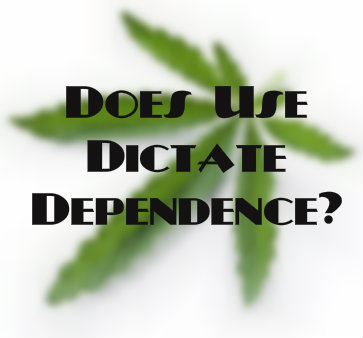 The study, which was led by Peggy van der Pol of the Trimbos Institute of the Netherlands Institute of Mental Health and Addiction, suggests that theories about whether increased levels of the psychoactive ingredient delta-9-tetrahydrocannabinol (THC) can influence addiction may not be relevant. With varying potencies of THC available in marijuana, the researchers wanted to see whether potency, habits of the user or both determined the likelihood of them becoming addicted.
The study, which was led by Peggy van der Pol of the Trimbos Institute of the Netherlands Institute of Mental Health and Addiction, suggests that theories about whether increased levels of the psychoactive ingredient delta-9-tetrahydrocannabinol (THC) can influence addiction may not be relevant. With varying potencies of THC available in marijuana, the researchers wanted to see whether potency, habits of the user or both determined the likelihood of them becoming addicted.
Some scientists have argued that even when THC is more potent users may compensate by inhaling less. However, the authors say there is a much more relevant predictor.
While smokers of more potent pot receive more THC now than users of older generations of marijuana, the style of smoking is a better predictor of which users are likely to become dependent. Van der Pol explains that while every drug carries risk, the more potent forms of marijuana cause the user to take in more THC.
How Is Dependence Developed?
Other studies have focused on frequency of use when examining how dependence developed, as well as THC levels. Van der Pol’s team looked at data from 98 young adults enrolled in a long-term study on regular marijuana use in the Netherlands. The users were recruited from cannabis dispensing coffee shops, as well as through referrals. The participants all reported using marijuana at least three days per week in the previous year. One in three of the participants met criteria for dependence at baseline. The participants were mostly men and were an average age of 23.
Eighteen months after recruitment, and at another follow-up point at three years, the participants were interviewed about their cannabis use, and were even asked to smoke during the interview.
The researchers documented the specific behaviors each participant demonstrated, from rolling their joints to how often they puffed on the joint. To provide a picture of regular behaviors, the participants were asked to bring their own cannabis and roll their own joints.
The smokers who used more potent pot containing higher concentrations of THC did not roll weaker joints. Instead, they used more pot in each joint when compared to users of less-potent marijuana.
The potent pot users did inhale less smoke and had a slower pace of smoking when compared with their peers. However, these adjustments weren’t sufficient to compensate for the higher level of THC in the marijuana.
Instead of THC exposure, the study results showed that only behaviors specific to smoking were predictors of dependence. How many puffs a smoker took, and the amount they smoked, were the only strong predictors of dependence at three years following the initial examination.
The study’s findings may have an immediate impact on how users are educated about marijuana dependence. New users may be exposed to a stronger potency of marijuana and consume high levels of THC.
Find Out If Marijuana Legalization Is Leading To Increased Use


